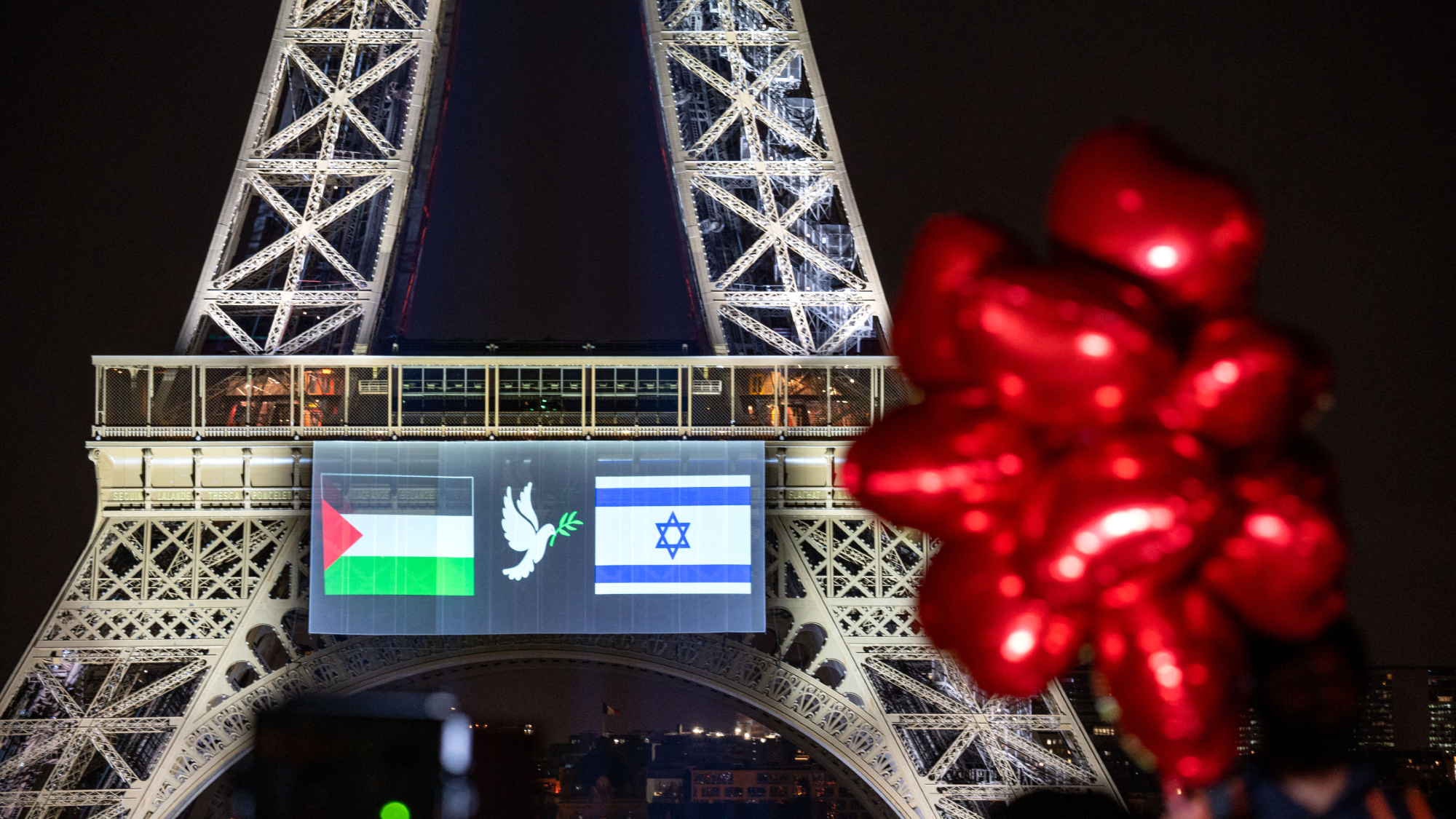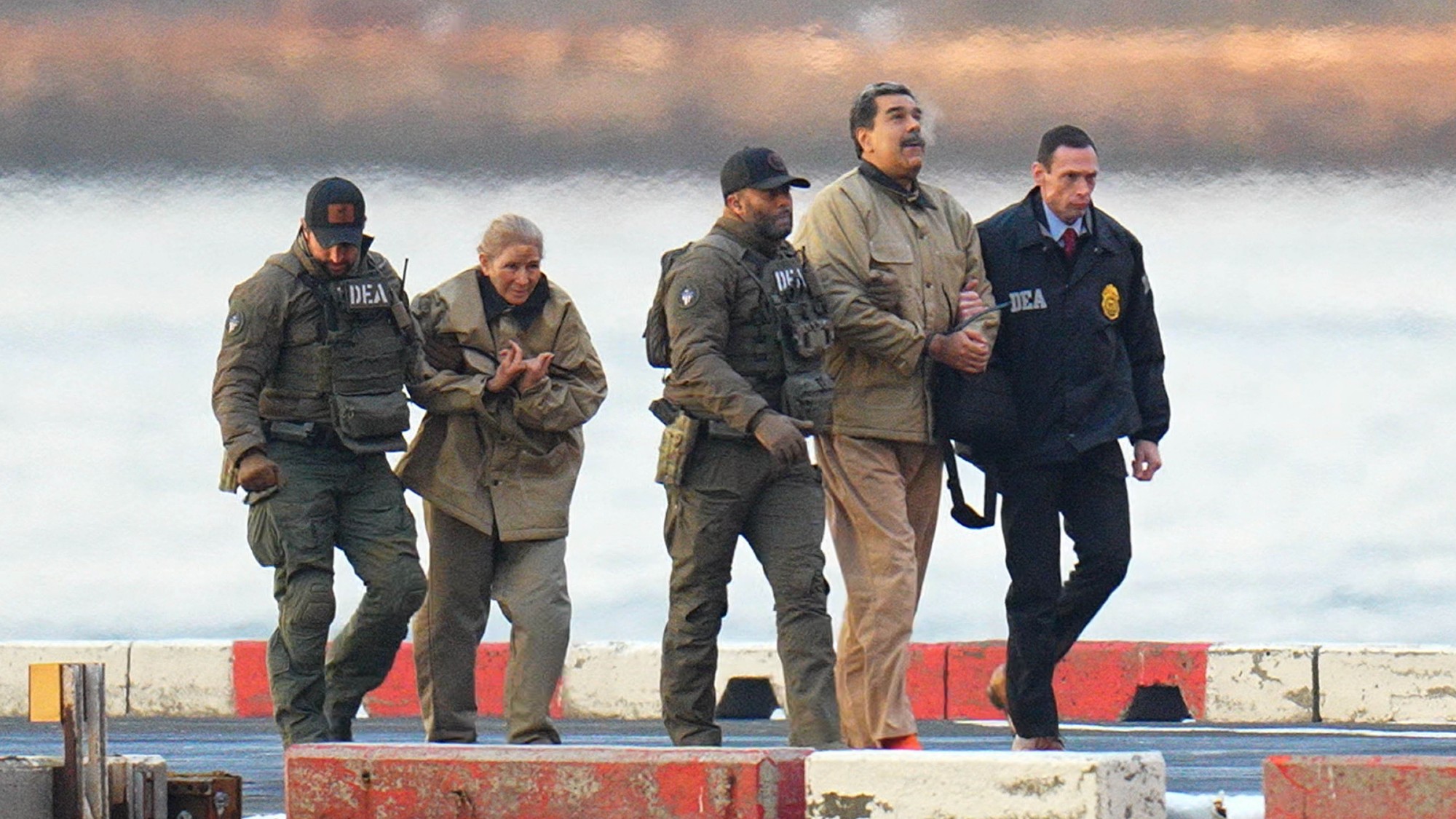UK, 3 Western allies recognize Palestinian state
Britain, Canada, Australia and Portugal formally recognized the state of Palestine


A free daily email with the biggest news stories of the day – and the best features from TheWeek.com
You are now subscribed
Your newsletter sign-up was successful
What happened
Britain, Canada, Australia and Portugal Sunday formally recognized the state of Palestine, calling the move a way to preserve fading hopes for a two-state solution to the Israeli-Palestinian conflict. About 150 other nations already recognize Palestinian statehood, and more are expected to do so this week, including France, as Israel’s war in Gaza and West Bank annexation threats sap support from Tel Aviv’s traditional Western allies.
Who said what
British Prime Minister Keir Starmer said in a video statement that recognizing Palestine statehood was intended to “revive the hope of peace for the Palestinians and Israelis” and was “not a reward for Hamas,” because it meant the “brutal terror organization” can “have no future, no role in government, no role in security.” Canadian Prime Minister Mark Carney said the move “in no way legitimizes terrorism,” but the “current Israeli government is working methodically to prevent the prospect of a Palestinian state from ever being established.”
The “leaders who are recognizing a Palestinian state” are “rewarding terror with an enormous prize,” Israeli Prime Minister Benjamin Netanyahu said. “And I have another message for you: It’s not going to happen. A Palestinian state will not be established west of the Jordan River.” Hamas, which also rejects a two-state solution, partially applauded the move. Palestinian Authority President Mahmoud Abbas said recognition was a step toward allowing the "State of Palestine to live side by side with the State of Israel in security, peace and good neighborliness."
Britain’s decision “carried particular symbolism given its major role in Israel’s creation as a modern nation in the aftermath of World War II,” Reuters said. “But without the United States coming on board with the idea of a Palestine,” Burcu Ozcelik at London’s Royal United Services Institute told The Associated Press, “I think very little will change on the ground.”
What next?
Sunday’s announcements fired the “starting gun on a week that will bring a watershed moment in international relations between Israel and major international powers” at the U.N. General Assembly, The Wall Street Journal said. Once France recognizes Palestine, the U.S. will be the “sole permanent member of the Security Council with veto power that is holding out,” The New York Times said.
The Week
Escape your echo chamber. Get the facts behind the news, plus analysis from multiple perspectives.

Sign up for The Week's Free Newsletters
From our morning news briefing to a weekly Good News Newsletter, get the best of The Week delivered directly to your inbox.
From our morning news briefing to a weekly Good News Newsletter, get the best of The Week delivered directly to your inbox.
A free daily email with the biggest news stories of the day – and the best features from TheWeek.com
Peter has worked as a news and culture writer and editor at The Week since the site's launch in 2008. He covers politics, world affairs, religion and cultural currents. His journalism career began as a copy editor at a financial newswire and has included editorial positions at The New York Times Magazine, Facts on File, and Oregon State University.
-
 Switzerland could vote to cap its population
Switzerland could vote to cap its populationUnder the Radar Swiss People’s Party proposes referendum on radical anti-immigration measure to limit residents to 10 million
-
 Political cartoons for February 15
Political cartoons for February 15Cartoons Sunday's political cartoons include political ventriloquism, Europe in the middle, and more
-
 The broken water companies failing England and Wales
The broken water companies failing England and WalesExplainer With rising bills, deteriorating river health and a lack of investment, regulators face an uphill battle to stabilise the industry
-
 Key Bangladesh election returns old guard to power
Key Bangladesh election returns old guard to powerSpeed Read The Bangladesh Nationalist Party claimed a decisive victory
-
 US, Russia restart military dialogue as treaty ends
US, Russia restart military dialogue as treaty endsSpeed Read New START was the last remaining nuclear arms treaty between the countries
-
 Iran and US prepare to meet after skirmishes
Iran and US prepare to meet after skirmishesSpeed Read The incident comes amid heightened tensions in the Middle East
-
 Which way will Trump go on Iran?
Which way will Trump go on Iran?Today’s Big Question Diplomatic talks set to be held in Turkey on Friday, but failure to reach an agreement could have ‘terrible’ global ramifications
-
 EU and India clinch trade pact amid US tariff war
EU and India clinch trade pact amid US tariff warSpeed Read The agreement will slash tariffs on most goods over the next decade
-
 Israel retrieves final hostage’s body from Gaza
Israel retrieves final hostage’s body from GazaSpeed Read The 24-year-old police officer was killed during the initial Hamas attack
-
 US nabs ‘shadow’ tanker claimed by Russia
US nabs ‘shadow’ tanker claimed by RussiaSpeed Read The ship was one of two vessels seized by the US military
-
 Maduro pleads not guilty in first US court hearing
Maduro pleads not guilty in first US court hearingSpeed Read Deposed Venezuelan leader Nicolás Maduro and his wife Cilia Flores pleaded not guilty to cocaine trafficking and narco-terrorism conspiracy
